Each year, MND Associations across the globe mark 21 June as a special day of recognition, acknowledging the impact that MND has on people around the world. MND is a global problem. It does not discriminate, and for every person diagnosed the effects of the disease will be forever felt by their families and friends.
In this week-long series of blogs, in acknowledgement of the work carried out by researchers and the support given by the wider MND community, and to mark Global MND Awareness Day, we will be taking a closer look at the research funded by the MND Association and how this is #DrivingMNDResearch.
We started this week taking an overall look at the funding provided by the MND Association, then we took a closer look at some of our PhD students, and then at the work of our Lady Edith Wolfson Junior and Senior Fellows. We are rounding off our salute to MND Awareness Day by sharing how we decide who to fund and exploring some more of those projects.
How does our review process work?
The MND Association’s objective is to support research which will lead, directly or indirectly, to finding a cure for MND. Evidence of originality, clear thinking and the potential for high quality and/or high impact publications is sought in preference to elaborations on existing knowledge, lack of focus or large numbers of low impact papers.
Funding for biomedical research is awarded by way of three types of grant: biomedical project grants, PhD studentships and Non-Clinical Fellowships. All interested applicants are first required to submit a summary application, A decision will be made as to whether summary applications are sufficiently relevant to classical MND (ie ALS, PLS and PMA) and whether the project aims fit with the published MND Association Research Strategy:
- Find new causes of MND and develop new laboratory models
- Detect novel diagnostic and prognostic markers of the disease
- Identify emerging therapeutic compounds for clinical studies
- Develop a Clinical Research/Clinical Trials Network
- Expand scientific and clinical research expertise in the UK
- Establish and strengthen collaborative links with industry and other funders
- Improve communication between researchers and people affected by MND.
Successful candidates are then invited to submit a full application. This is reviewed by external peer reviewers (ideally, we like to have three external reviewers per application), and internally by the Biomedical Research Advisory Panel (BRAP). The highest scoring applications are then recommended to the Board of Trustees for a final decision.
Lady Edith Wolfson Clinical Research Fellowships are jointly funded by the Association and the Medical Research Council (MRC). They support clinicians (practising doctors) wishing to pursue scientific research and aim to strengthen the links between laboratory and clinic. These awards are administered by the MRC and will not normally be discussed and reviewed by the BRAP.
Applications for Healthcare Project Grants are also subject to external peer review and discussion by the Healthcare Research Advisory Panel (HRAP) and Board of Trustees.
As at 31 May 2021 we are funding 27 biomedical projects with a total value of £6.3 million. In this blog we will be taking a closer look at the work being carried out by three of our biomedical project grantees.
Meet our Biomedical Project Grantees

The aim of Dr Anny Devoy’s (King’s College London) project is to identify and investigate the earliest disease-specific changes that occur in MND in order to identify key cellular changes that contribute to the death of motor neurons.
The project will take advantage of a new FUS mouse model of MND to investigate the interaction of mutant FUS with two important cellular structures – the endoplasmic reticulum and mitochondrion – which are essential for maintaining energy, and thus the health of cells, especially neurons.
Anny’s work is supported by the Hornby Lonsdale Charitable Trust.
Anny said of receiving support from the Association:
“Receiving support from the MND Association, through advice and guidance as well as funding, has played an essential role in helping establish myself as an independent researcher. For a young scientist, the impact of this type of support cannot be overstated.”
Dr Ahmad Al-Khleifat, also from King’s College London, is investigating a new strategy for clinical trials and personalised therapy in MND. Analysis of clinical trial data generally assumes it is one disease, rather than multiple diseases representing different underlying pathologies, but knowing how to subgroup patients for targeted trials is essential. Imaging based subgrouping methods such as brain scanning do not exist, and subgrouping based on disease hallmarks from brain and spinal cord tissue is not feasible while the affected person is alive. The purpose of this project is to generate a DNA fingerprint for each person in an ongoing trial – MIROCALS – to understand why some people are likely to respond to treatment and others are not. The analysis will also extend to the biggest MND genetic project in the world, Project MinE, to ensure observations are not biased.
Talking about his project grant, Ahmad said:
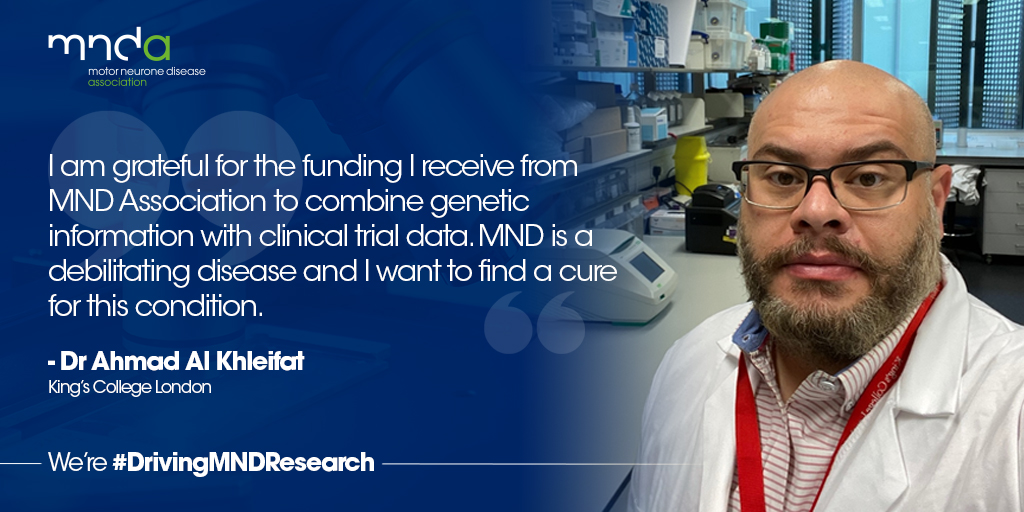
Dr Han-Jou Chen, from the University of York, is looking at ways to manipulate the heat shock response pathway for MND therapy. By increasing levels of the heat shock factor HSF1, the tendency of the TDP-43 protein to clump together, accumulate and cause the death of motor neurons decreases.
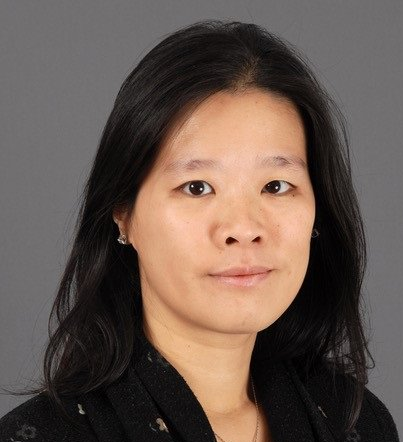
HSF1 was already found to be reduced in spinal cords of people with MND, suggesting that lack of HSF1 contributes to accumulation of TDP-43. Dr Chen will apply a specialised gene therapy technique in a mouse model to investigate the effectiveness of increasing HSF1 levels on reducing disease symptoms. The findings could lead to identification of new drugs that might act on HSF1.
Han-Jou said:
“The MND Association is a down-to-earth charity that is driven by their mission in supporting projects and researchers to combat the disease. It provided me with great support in my research which subsequently enabled my transition from postdoctoral research to my current position. Over the past few years supported by and communicating with the MND Association, I can genuinely say that it is a charity that really takes an interest in the projects they fund and cares for the researchers they support!”
What else do we fund?
As well as our PhD Studentships, Non-Clinical Fellowships and Biomedical research grants, we are also funding:
- 13 Healthcare project grants, totalling £2.8 million (two of these are in partnership with Marie Curie)
- 1 Special grant to the University of Oxford with a value of £1 million
- 3 Clinical Fellowships totalling £0.5 million. These are the Lady Edith Wolfson Fellowships, which we only part-fund, the majority of funding being provided by the Medical Research Council.
- 16 Small grants, totalling £151,606.
So far in 2021 we have awarded new funding of £700,000. Funding is being made available to projects which have been adversely affected by the COVID-19 pandemic to ensure vital work can continue. This consists of three new biomedical project grants, one studentship, three small grants and some top-up funding for a studentship affected by the 2020 lab closures.
Five decades of research
The Association’s commitment to understanding MND and the relentless search for treatments is now in its fifth decade. We will not stop until we have reached our vision – a world free from MND.
How can you get involved?
You can help us increase awareness of MND research by sharing any of the Association messages which will be posted across Twitter, Facebook, and Instagram using the hashtag #DrivingMNDResearch. Please share your involvement with the MND Association and the invaluable part you play in #DrivingMNDResearch.
You can also:
- Subscribe to our MND Research Monthly newsletter and have all the latest developments in MND research delivered straight to your inbox each month.
- Join our Research List to be informed of research opportunities as they come up. You can find out which research opportunities you can currently get involved in on our Take part in research page.
- You can also become a Cure Finder and support our United to End MND campaign.
For more information and to download our #GlobalMNDAwarenessDay graphic to use, head to our website.
The MND Community is a passionate, dedicated and focused team of people contributing expertise, time and money to the collaborative effort to find treatments and ultimately a cure for this brutal disease.
We are proud to work with every one of you and thank you for your continued support.

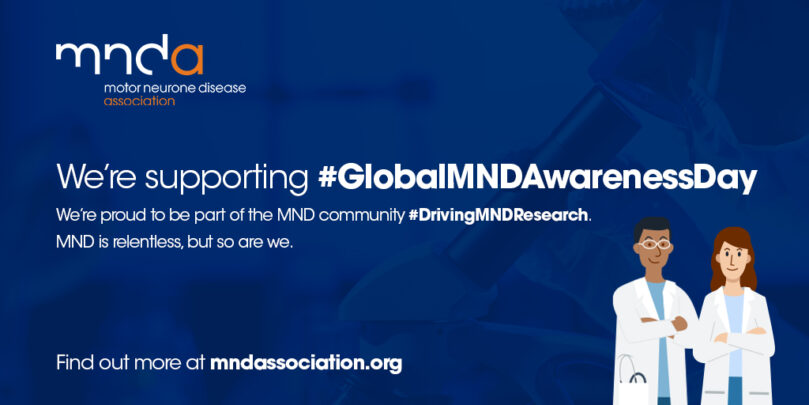


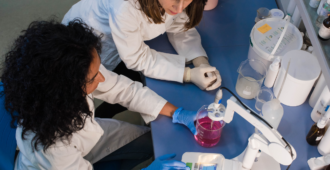
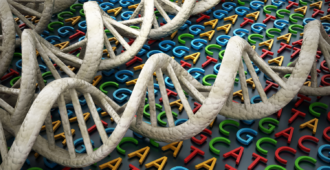
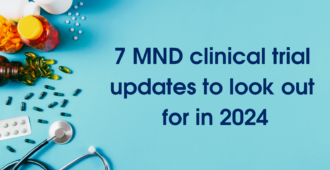
We very much appreciate all the help and support we get from the organization, a lot of the help is from volunteers who are wonderful giving there time to support those families that are suffering with MND to see a loved one suffering with MND with no cure is indescribable.
Lets hope a solution comes soon.